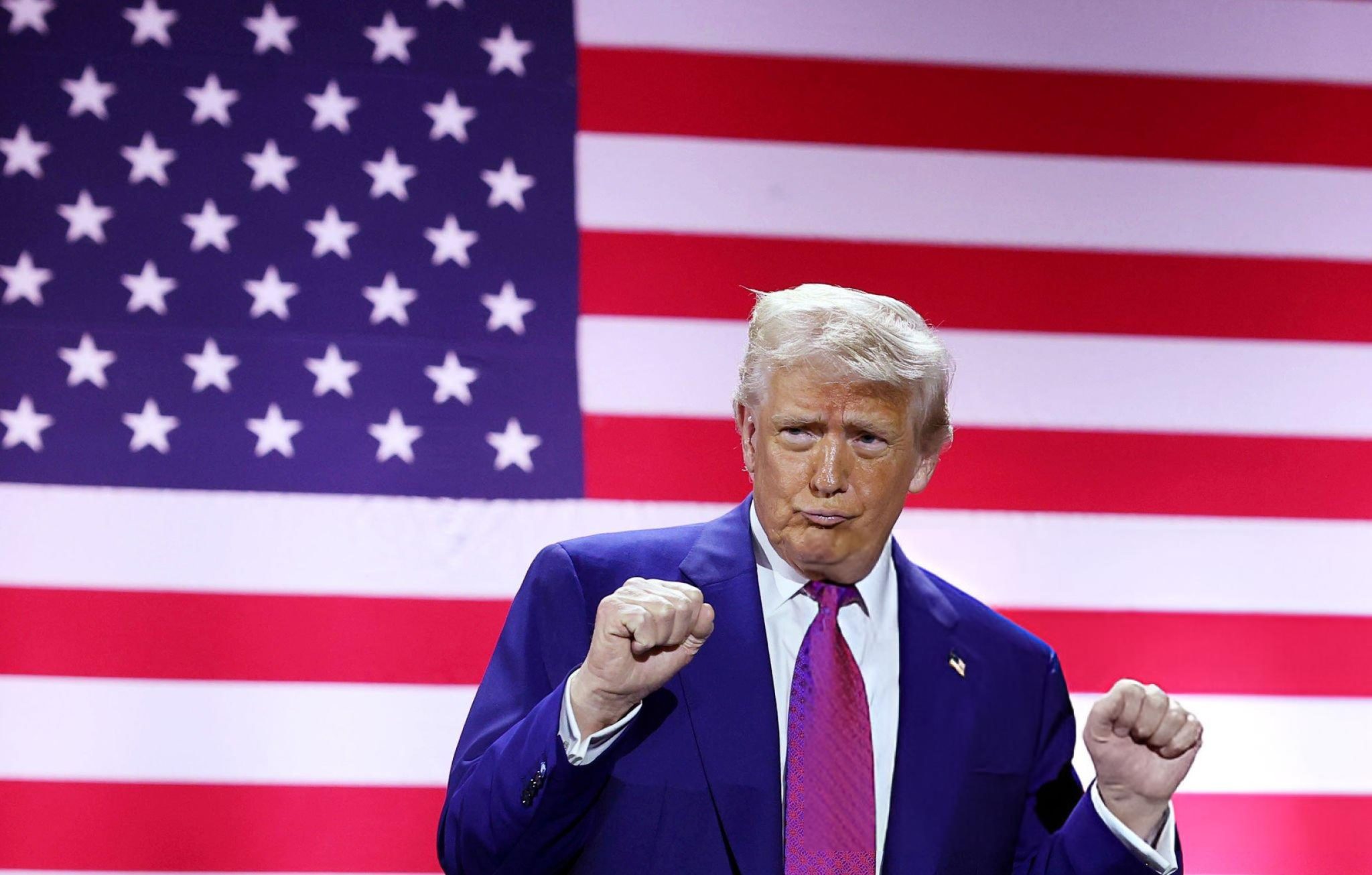US President Donald Trump has confirmed that a proposed 50% tariff on European Union imports to the United States will be postponed until 9 July, following a direct appeal from European Commission President Ursula von der Leyen.
Speaking to journalists at his golf resort in New Jersey on Sunday evening, Mr Trump revealed that Mrs von der Leyen had requested additional time for “serious negotiations” between Washington and Brussels, aimed at avoiding a major escalation in transatlantic trade tensions.
“Mrs von der Leyen called me… and she asked for an extension on the June 1 date,” Mr Trump said. “She said she wants to get down to serious negotiations because… I’ve told anybody that would listen, they have to do that.
“We had a very nice call and I agreed to move it… I believe July 9 will be the date, that was the date she requested. She said we will rapidly get together and see if we can work something out.”
Shortly after the announcement, Mr Trump took to his social media platform, Truth Social, to reiterate the message:
“I received a call today from Ursula von der Leyen, President of the European Commission, requesting an extension on the June 1st deadline on the 50% Tariff with respect to Trade and the European Union. I agreed to the extension — July 9, 2025 — It was my privilege to do so. The Commission President said that talks will begin rapidly.”
The decision to delay the introduction of the tariff offers a temporary reprieve for European exporters, many of whom had been bracing for a sharp rise in costs amid already turbulent economic conditions. Sectors such as automotive manufacturing, agricultural produce, and high-end consumer goods were expected to be particularly hard hit by the proposed tariffs.
The move marks the latest twist in what has been a rapidly evolving trade saga. Back in April, Mr Trump announced a 20% tariff on EU goods, citing longstanding concerns over trade imbalances and regulatory differences. That rate was subsequently reduced to 10% and set to remain in place until 8 July, allowing space for negotiations.
However, frustration over the pace of those talks appeared to boil over last Friday when Mr Trump declared they were “going nowhere”. He said he would recommend the more severe 50% tariff come into force on 1 June if there was no movement from Brussels.
The European Commission has repeatedly urged restraint, warning that tit-for-tat tariffs would only damage both economies and global supply chains.
Following the call with Mr Trump, Mrs von der Leyen posted on X (formerly Twitter):
“Good call with @POTUS. The EU and US share the world’s most consequential and close trade relationship. Europe is ready to advance talks swiftly and decisively. To reach a good deal, we would need the time until July 9.”
Observers in Brussels welcomed the delay but cautioned that serious differences remain. EU officials are expected to focus their efforts on securing exemptions for key industries and pushing back against what they view as unfair protectionist measures.
Trade analysts say the EU’s willingness to engage may reflect growing concern that President Trump, who is seeking re-election later this year, could use trade policy as a campaign weapon.
“President Trump sees tariffs as a tool of leverage, not just economics,” said Dr Elise Becker, senior fellow at the London School of Economics. “He’s applying pressure, but also leaving the door open for a deal — if the EU can give him a political win.”
For now, businesses on both sides of the Atlantic have been granted a narrow window of stability. Whether that will be enough to forge a lasting agreement before the 9 July deadline remains to be seen.






